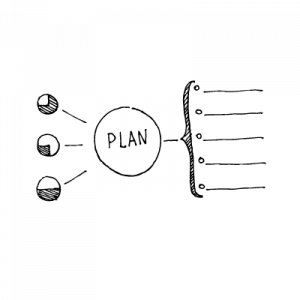If you're working on an essay for an MBA program this application season, here's one big tip: do not mention Hitler when you're writing about leadership.
Julie Barefoot, admissions director at Emory's Goizueta Business School, said that receiving a leadership essay about Hitler was the most egregious mistake she ever saw in an MBA application essay.
"It showed horrible judgment," Barefoot says. "Inappropriate on every level."
Most MBA applicants probably know not to make this mistake--and if they didn't know before, they do now. But the Hitler essay mistake is a manifestation of a problem that admissions directors say they see on a smaller scale with many applicants' essays: poor judgment.
"The jobs that our MBA students are getting are very meaningful jobs. These are big jobs. They certainly can affect or impact people's lives," Barefoot says. "[Therefore we're looking for] good judgment, strong analytical skills. These are all things we look for in an application. Not all of those are characteristics you can discern in an essay, but a lot of them you can."
An essay is just one part of an MBA application, alongside letters of recommendation, GMAT scores, resumes, work experience and GPAs. Essays can ask applicants to address a variety of topics, including their post-business school plans, their greatest achievements, and their role models. But all admissions essays have one thing in common: they present an opportunity for students to inject a personal flair into the impersonal numbers and lists of internships that comprise the rest of an application.
Schools therefore use the essays to assess candidates' intangible qualities, such as whether they will participate well in class, interact positively with professors, impress recruiters and ultimately enhance the schools' reputation and brand when they join the ranks of alumni.
Many admissions directors describe the essay as a kind of test. If a student can't put together a coherent 300-word essay answering a simple question, how can he or she succeed in graduate school?
> How to Write MBA Application Essays
"For Goizueta we are very interested in getting a clear handle on the applicant’s post-MBA plans and how the applicant’s background, demonstrated leadership, interpersonal skills and the MBA skill set will enable them to transition into that new role," Barefoot says.
"If an applicant cannot clearly articulate their post-MBA plans or if they cannot convey how this post-MBA job is a good fit for them, that is very concerning to us."
Directors also say that students should think outside the box when writing their essays.
"A good essay is an essay that's written in a student's voice and tells a story," says Kellee Scott, interim director for the MBA program at the University of Southern California's Marshall School of Business. "A lot of people use a lot of services to write a good essay, and that means you end up with a lot of cookie cutter essays."
Stay on topic
Stephan Kolodiy, senior admissions officer at Rutgers Business School, says Rutgers asks students to choose one of several topics and write an essay. Too often, students end up writing an essay on a completely different topic.
"It shows that they can't follow instructions," Kolodiy says. "It's basically a short paper. It's a two-page paper, and it's a very simple topic. If they can't follow instructions on this, then how are they going to be able to do it once they're in the classroom?"
Off-topic essays are often symptomatic of another big error that students make when applying to MBA programs: writing one essay and clumsily tweaking it for every school on their application list. Most admissions directors are adept at sniffing out when an essay's been copied and pasted. And sometimes, applicants make it blindingly obvious that they've reused an essay--by committing the cardinal sin of referring to the wrong school in an essay.
"When you get that essay that the other school's name is in, it really demonstrates a lack of interest in your school," says Scott.
"If they're a borderline candidate, you may not want to lift them over the border if they're indicating that their first choice is another school."
Then, of course, admissions directors hate to see other careless errors: typos, poor word choice, or badly constructed sentences. Error-riddled essays are difficult to read, and they also point to a certain sloppiness frowned upon in graduate school and in the business world.
"The most common communication vehicle now is email," Goizueta’s Julie Barefoot says. "Some students can be sloppy about responding to email. If you're sloppy about your essay, how are you going to be when you send an email to a recruiter?"
Of course, admissions directors have personal pet peeves and preferences when it comes to essays. Kellee Scott says she dislikes when applicants use too many inspirational quotes and phrases. Stephan Kolodiy doesn’t like when applicants use too much industry-specific lingo and he has to Google every other word in an essay.
Recruit an editor
So how to avoid all of these mistakes? Barefoot suggests that students send their MBA essays to a trusted friend, family member or mentor who has some prowess with the English language to review the text for errors and to see whether the writer has answered the question or not. Barefoot says a good way to assess whether the writer has answered the question effectively is by not telling the reader about the question, and asking them to figure it out by reading the essay.
Barefoot says that the best essays display personality and are easy to read because they are so well-written. And Kolodiy recommends that students use the essay as an opportunity to make a lasting impression on an application committee.
"All the other part of the application--the GRE, the GMAT score--that won't be something that we remember about them," Kolodiy says.
"But something we read in the essay will be something we remember about them."
Image credit: Birkenkrahe










